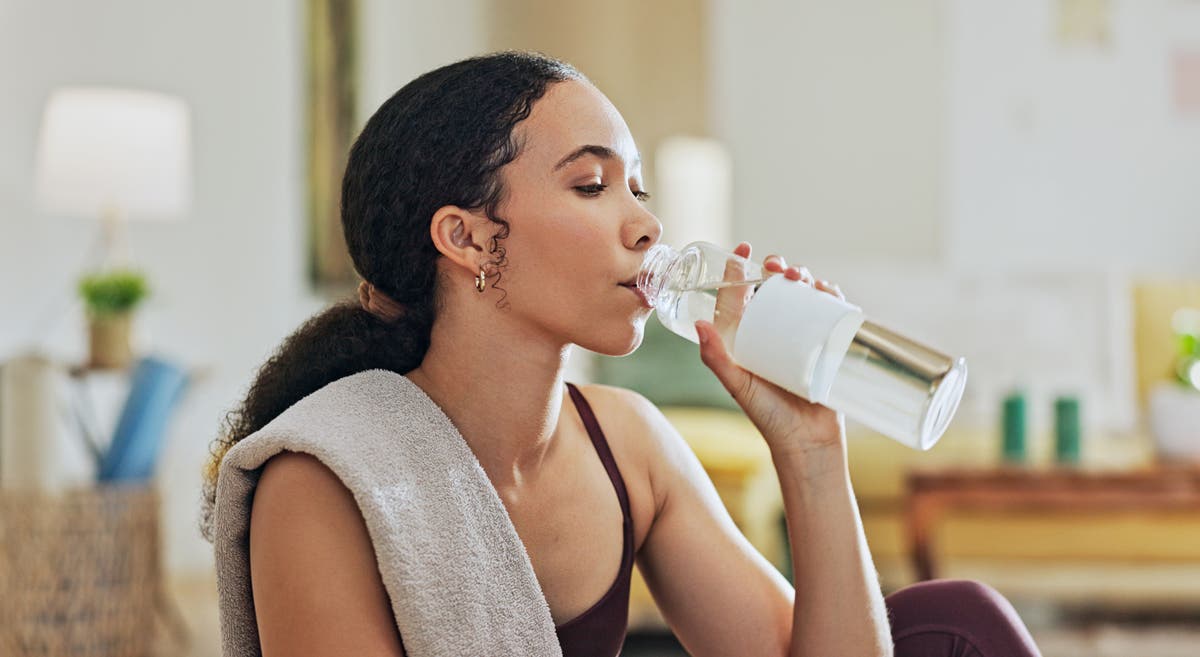Your support helps us to tell the story
From reproductive rights to climate change to Big Tech, The Independent is on the ground when the story is developing. Whether it’s investigating the financials of Elon Musk’s pro-Trump PAC or producing our latest documentary, ‘The A Word’, which shines a light on the American women fighting for reproductive rights, we know how important it is to parse out the facts from the messaging.
At such a critical moment in US history, we need reporters on the ground. Your donation allows us to keep sending journalists to speak to both sides of the story.
The Independent is trusted by Americans across the entire political spectrum. And unlike many other quality news outlets, we choose not to lock Americans out of our reporting and analysis with paywalls. We believe quality journalism should be available to everyone, paid for by those who can afford it.
Your support makes all the difference.
Electrolytes are one of those things you’ll hear a lot about this time of year. The term will usually crop up after a big night out, possibly the office Christmas party, when WhatsApp groups will become alight with talk of the stuff. “Have you had yours yet?” one person will ask. “I downed some when I got home,” another will reply. “Wait, sorry, does anyone actually know what electrolytes are?” a third will inevitably chime, prompting a series of shrug emojis and laughter faces.
Despite few people actually knowing what they are and how they work, electrolytes are everywhere. We can get them naturally, of course, from a healthy diet and lifestyle; the body even produces some on its own. But that’s not why we know about them. It’s because they are currently being aggressively marketed by manufacturers producing products containing them. In recent years, electrolytes have inveigled their way into breakfast smoothies on the morning commute and beauty supplements popped before bed. They’ve become so common you might find them in small sachets dispensed into water bottles after a night on the town, or even in tents pitched on the muddied fields of a festival.
Most of us instinctively grasp they are beneficial and that they help restore our hydration levels. Perhaps we think they’ll mystically cure our hangover. But unless you’re a doctor, or some sort of electrolyte influencer – you’ll see a lot of this stuff being peddled on Instagram – that’s probably about it. So, what actually are they? How do they help us? And should we all be taking them, and, at the same time, spending oodles of cash on finding new and interesting ways to do just that?
“Electrolytes are essential minerals like sodium, potassium, calcium, and magnesium that regulate various bodily functions,” explains Dr Suzanne Wylie, a GP and medical adviser for online pharmacy, Iqdoctor. “They help maintain fluid balance, support nerve transmission, and aid muscle function, including heart contractions.” They also assist in maintaining blood pressure and ensuring proper hydration by facilitating water retention in cells.
Most of the time, we’re getting them without even realising. “If you’re generally healthy, drink plenty of water throughout the day, and eat balanced meals that include whole foods, you probably won’t need electrolyte drinks or supplements,” says nutritionist Riya Lakhani-Kanji. “Just ensure you’re getting in a good balance of electrolyte-rich whole foods in your meals. Bananas, avocados, and sweet potatoes are excellent sources of potassium. For sodium, you might consider pickles or soups. And, foods like spinach and kale offer a good amount of magnesium, another essential electrolyte.”
There’s also calcium, which is vital for bone health, phosphate for nerve function, and chloride, which helps the body maintain pH levels. “When electrolyte levels are balanced, the body can perform optimally, reducing the risk of dehydration, muscle cramps, and fatigue,” adds Dr Wylie. “Electrolytes are lost through sweat, urine, and other bodily fluids, especially during exercise or illness, making replenishment crucial for overall health.”
When electrolyte levels are balanced, the body can perform optimally, reducing the risk of dehydration, muscle cramps, and fatigue
Dr Suzanne Wylie
With this in mind, it makes sense that people take electrolytes after a night of drinking – hence why so many electrolyte products are marketed this way, such as Phizz tablets or Humans Against Hangovers sachets. “A hangover often results from dehydration caused by alcohol’s diuretic effect, leading to fluid and electrolyte loss,” explains Dr Wylie. “Replenishing electrolytes can mitigate common hangover symptoms like headache, fatigue, and dizziness by restoring hydration and supporting nerve and muscle function.”
This is because sodium can help to retain water, while potassium and magnesium combat muscle weakness and cramping, all of which can happen after a night of alcohol consumption. In terms of when and how to consume them, well, that depends. “The optimal approach is to take electrolytes before, during, and after alcohol consumption,” says Dr Wylie. “Drinking water with electrolytes before a night out can provide a hydration buffer while sipping electrolyte-enhanced water throughout the evening helps counter alcohol’s dehydrating effects. Post-drinking, using oral rehydration solutions or electrolyte drinks before bed or the next morning can replenish lost fluids and minerals.” The number of people who think to do that when they’re drunk instead of simply faceplanting their bed is, of course, another story.
Electrolytes can help us far beyond hangovers, though. “When you lose fluids after feeling unwell, you also lose electrolytes, and that can be a major contributor to symptoms,” says Nick Hird, co-founder of the hydration brand ViDrate. “I would advise taking electrolytes after an intense or sweaty exercise session and following the intake of alcohol. Both activities can severely impact your electrolyte levels through fluid loss, so make sure to add an electrolyte supplement to your water to replenish any lost vitamins and minerals.”
But not all electrolytes are good for us, or rather, not all the products we’re consuming them from. Take one look at supermarket shelves and you’ll find countless high-sugar drinks advertising themselves as hydrating, electrolyte-packed products that can benefit you after a night of drinking or a particularly intense workout. These are best avoided. “Many sports drinks and recovery beverages are packed with added sugars, which can sometimes do more harm than good,” agrees Lakhani-Kanji. “Consuming too much sugar, especially when you’re already feeling run down or hungover, can lead to further dehydration and could spike your glucose levels, ultimately leaving you more tired.”
However, like with all health and wellness trends, before getting involved – and spending money – it’s important to take stock and check whether or not the thing you’re buying into is actually something your body can already do on its own. Think about so-called “protein bars” which are laden with sugar and covered in caramel and chocolate; these products are tapping into the healthy eating zeitgeist through tacit branding while delivering a product that’s fundamentally confectionary. Often, our compulsion to lean into trends is a direct consequence of canny marketing and advertising; we’re told that our bodies need products and supplements we actually don’t, or we’re combatting problems we could simply stop creating ourselves. For instance, if you’re so worried about the effects of hangovers, you’re better off cutting down your alcohol consumption as opposed to loading up on electrolytes.
If you really must reach for the products themselves, the best are generally the simplest. “A simple tablet that dissolves in water will contain far less sugar and be just as nice,” says Jess Hillard, sports nutritionist at Warrior. “Likewise, coconut water is a natural electrolyte which tastes great, no nasty sugars or flavourings.”
“Oral rehydration salts from pharmacies are typically balanced for optimal hydration without excess sugar, making them a better option too,” adds Dr Wylie. And if you’re still in doubt, well, just down a giant glass of water.
Source link
 Insights Daily World is your one-stop destination for discovering unbeatable discounts, trending deals, and the latest offers across various products. Stay informed with the newest updates, breaking news, and insightful deals, all designed to help you save and stay ahead
Insights Daily World is your one-stop destination for discovering unbeatable discounts, trending deals, and the latest offers across various products. Stay informed with the newest updates, breaking news, and insightful deals, all designed to help you save and stay ahead




